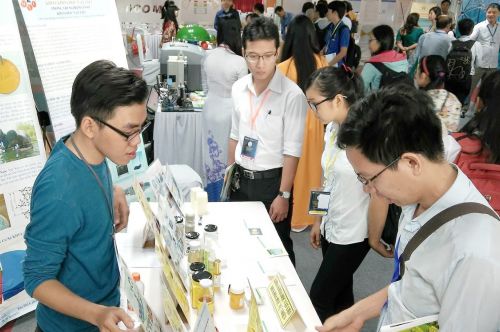Little land left for investors to build new plants
Many investors are now unable to find adequate land plots in Ho Chi Minh City to set up new facilities, while a large area of land zoned for industrial construction has been occupied by investors who are incapable of getting things started.
The Saigon Hi-Tech Park has been granted 913 hectares of land by the city’s People’s Committee to attract local and international investors, according to Nguyen Thi Minh Thu, SHTP head of international relations.
The land granting, however, was conducted in two phases, and during the first one, SHTP received 300ha as of 2010, while the remaining 613ha will be handed over by the end of next year.
Thu said more than 90 percent of the land plots granted in the first phase have been leased to investors operating in the high technology sectors.
However, many of the investors who have been granted land plots inside the park have in fact done nothing on the land, even though some of them received the license two to three years ago.
A number of land plots spanning dozens of thousands of square meters are now covered with grass.
As of the end of September, SHTP is home to 29 operational projects, four that are under construction, and as many as 13 licensed projects that have yet to disburse capital for investment.
Most of the sluggish investors are local companies who are suffering from capital shortages.
Three of the incapable investors have had their license revoked, and been requested to give their assigned land plots to other investors, said Le Hoai Quoc, head of SHTP’s project management unit.
But several weed-covered land plots can still be seen spanning large areas at the park, as recently observed by Tuoi Tre reporters.
Moving to provinces
The industrial land shortage in the city has thus become a headache for investors who want to expand their facilities.
Japan’s Nissei Electric Co Ltd recently had to set up their new electronics parts plant in the Mekong Delta province of Tien Giang, as there were no available plots left in the city.
Yet another Japanese investor, the Nidec Tosok Co, a subsidiary of the Nidec Corporation, also failed to establish a new plant in the city in 2011.
Nidec Tosok initially sought to find an available plot inside city-based industrial parks or processing and exporting zones for its US$36 million Solenoid valve plant, but eventually found nothing, recalled CEO Osamu Kawakami.
"We then flew to Da Nang, but ended up building the plant in Ben Tre Province,” he told Tuoi Tre.
The facility is now under construction at the Giao Long Industrial Park, and Kawakami still regrets that he could not make it in the city.
"We already have one plant in the Tan Thuan Processing and Exporting Zone, and it would have helped save time and transport expenses if the Solanoid plant was also in the city,” he said.


